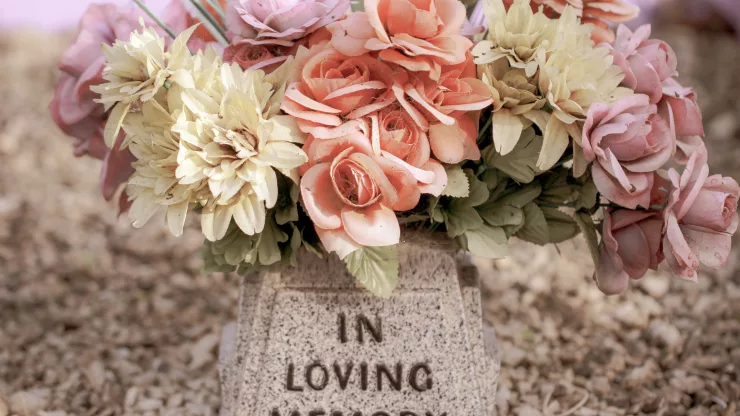Jump to Section
Understanding Grief as a Life Transition
Losing a loved one is an inevitable part of life, but it doesn’t make it any less painful. Grief is a natural response to loss, and it can be overwhelming, confusing, and all-consuming.
However, it’s important to understand that grief is a life transition that requires time, patience, and self-compassion.
Just like any other life transition, grief involves a process of letting go of the old and adapting to the new.
It’s a journey that’s unique to each individual, and there’s no right or wrong way to grieve.
In this article, we’ll explore some strategies for coping with the loss of a loved one from a life transition perspective.
Acknowledge Your Feelings: The Importance of Emotional Expression
When you’re grieving, it’s essential to acknowledge and express your feelings. Emotions like sadness, anger, guilt, and confusion are all normal, and they need to be expressed in a healthy way.
Here are some ways to do that:
- Write in a journal
- Talk to a trusted friend or family member
- Join a support group
- Seek professional help from a therapist or counselor
Suppressing your emotions can lead to physical and mental health problems, so it’s crucial to find healthy outlets for your feelings.
Finding Meaning in Loss: A Journey of Self-Discovery
When you lose someone you love, it can feel like your world has been turned upside down. However, it’s possible to find meaning and purpose in the midst of your grief.
Here are some ways to do that:
- Reflect on your loved one’s life and legacy
- Identify what you’ve learned from your loss
- Connect with others who have experienced similar losses
- Volunteer or donate to a cause that was important to your loved one
Finding meaning in your loss can help you make sense of your grief and move forward with a sense of purpose.
Self-Care: Nurturing Your Mind, Body, and Soul
Self-care is essential when you’re grieving. Taking care of yourself physically, emotionally, and spiritually can help you cope with your loss and build resilience. Here are some ways to practice self-care:
- Exercise regularly
- Eat a healthy diet
- Get enough sleep
- Practice mindfulness or meditation
- Engage in activities that bring you joy
Taking care of yourself isn’t selfish; it’s necessary for your healing and well-being.
Building a Support System: Reaching Out for Help and Connection
Grieving can feel lonely and isolating, but you don’t have to go through it alone. Building a support system can provide you with the connection and comfort you need during this difficult time.
Here are some ways to build a support system:
- Lean on friends and family
- Join a grief support group
- Seek professional help
- Connect with others online through social media or forums
Your support system can provide you with a safe space to express your feelings, receive practical help, and feel less alone.
Moving Forward: Embracing Change and New Beginnings
Grief doesn’t mean that your life is over; it’s a journey that can lead to new beginnings and opportunities.
Moving forward doesn’t mean forgetting your loved one, but it means finding a new way to live without them physically present.
Here are some ways to move forward:
- Set new goals and aspirations for your life
- Create new traditions and rituals to honor your loved one
- Focus on the present moment and what you can control
- Cultivate gratitude for the time you had with your loved one
Moving forward is a process, and it’s okay to take it one step at a time.
FAQ
How long does grief last?
Grief is a unique process, and there’s no set timeline for how long it lasts. Some people may feel better after a few months, while others may take years to heal.
It’s important to remember that grief is a journey, and it’s okay to take the time you need to heal.
Is it okay to feel happy after a loss?
Yes, it’s okay to feel happy after a loss. Grief is a complex process that involves a range of emotions, including happiness, joy, and contentment.
Feeling happy doesn’t mean that you’re forgetting your loved one or that you’re not grieving properly.
How can I help a friend who’s grieving?
If you have a friend who’s grieving, the best thing you can do is be there for them. Listen to them, offer practical help, and provide emotional support.
Avoid trying to fix their grief or telling them how to feel. Grief is a unique process, and everyone experiences it differently.

With a deep passion for personal development, Ben has dedicated his career to inspiring and guiding others on their journey towards self-improvement.
His love for learning and sharing knowledge about personal growth strategies, mindfulness, and goal-setting principles has led him to create My Virtual Life Coach.
Contact Ben at [email protected] for assistance.




